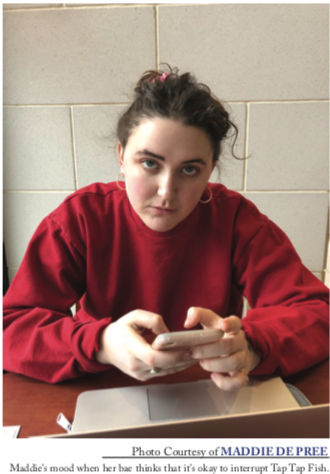Last spring, I had the pleasure to spend a semester abroad in Athens, Greece. It was an opportunity I did not dare forgo — to study in one of the ancient world’s greatest hearths of knowledge (even as it declined from bustling city to famed college town under Roman rule) is a dream to any Classicist, such as myself. I envisioned a city littered with ancient sites and charm; as Rome was to Italy, so too was Athens to Greece in my mind. Then I flew in. From on high I gazed down not on the picturesque ruins and general charm I had envisioned, but upon a homogenous, white mass, discolored by the daily cigarette smoke of its millions of inhabitants. A surge of disillusionment dragged me down like Charybdis was said to do to many fated ships. The cab from the airport provided little relief: he tried to charge us double and then drove with that patently bad and fear inducing driving Mediterranean cabs are known for. The drive was not lacking for excitement, however, as it provided a crash course on Greek insults and rude gestures. Were I to stop here, Athens might seem a terrible destination. I will assure you my disillusionment was not long-winded. A quick turnaround began as I first moved into my apartment, which, given the homogeneity of Athens, is quite similar to every apartment there. Two features stand out and constitute points of pride among the Greeks. The first is the thick, marble countertop in the kitchen. Modern Athenians seize every opportunity to connect themselves with their ancient counterparts and the land around them; the presence of Pentelic marble, with which the Athenians constructed all their major landmarks, in the home on a surface interacted with daily amply satisfies this desire. Second, an open-air balcony with a perilously short rail meant “not to protect you from falling” but rather to “remind you that you can fall,” as my Greek instructor, Angeliki, would say. This, more so even than the marble counter, is the pride and joy of an Athenian home. This is where you display your gracious hospitality — a custom rooted as far back as the bronze age — this is where you take back souvlaki to eat in the open air as far away from the din of the city as you can get from within, this is where you enjoy late nights with a glass, or few, of wine and good company. From there on, I met the people, indulged in the food night and night again, and visited those ancient sites engulfed by the concrete jungle. It was all superb; though, for the sake of brevity, which I am already endangering, I will spare you the details of my experiences and, instead, provide you with advice so you can rejoice in Athens the same.
Visit during February or March, if possible; the weather is great and there will be far fewer tourists. There are hotels in Athens, but you should try to book an Airbnb (or something similar) in the neighborhood of Pangrati; it will allow you to experience that balcony, so critical to the Athenian culture, put you in a better location for dining (while still not far from major sites), and likely be more comfortable than a hotel. With that in order and upon arrival, you will take a cab from the airport to Kallimarmaro (the Panathenaic Stadium), which is within walking distance to most of Pangrati.
Settle in at your apartment then make a trip to the nearby ΑΒ or ΣΚΛΑΒΕΝΙΤΗΣ grocery store to assemble a porch picnic — I recommend this be your first meal (depending on when you arrive), as the Greeks eat dinner late in the evening. Restaurants will also take offense if you do not finish what you order, no matter how full you say you are (simply request a to-go box if you truly cannot go on). Athens is by no means a city for “foodies” (Thessaloniki or Crete are suited for that), but Pangrati is not lacking for excellent dining options. Το µαβρος γατος serves hearty, traditional Greek food and, though it can be hard to flag your server, you will find that it has a certain charm to it, just do not plan on it being a quick meal . Το µαβρος προβατος (you will notice that many restaurants are named after µαβρος, “black,” animals) is located caddy-corner to the former restaurant and provides modernized interpretations of Greek classics (they also have great takeout). Κατσουρµπος offers a taste of Crete in the midst of Athens: go here when you want food spiced with things other than salt, pepper or thyme. If I have one regret about my time in Athens, it’s that I didn’t discover Baba Ghanoush sooner; dine here for their incredible falafel and other middle eastern treats. The pinnacle of Athenian food is Ελβις Σουβλακινεια, come here on a Friday night for cheap, good food and the man working the register will slide you a shot of Raki while you wait on your order.
In regards to the sites, I offer a brief bit of advice. Wake up early, grab a coffee and τυροπιτα, and get to the Acropolis by 8:30 to avoid the crowd. Look up from down low and you will notice several places where the Acropolis was repaired by constructing old buildings into it (a singular example of spolia). Visit the Acropolis museum afterwards. Do not skip the Agora, the Keramaikos or the national Archaeological museum. Pick a day with good weather to make an afternoon trip to Σουνιον and see the temple of Poseidon, where you can walk the rocky and column-drum-littered coast below. Take a trip to Delphi, but only if you go in February when you can avoid the crowd and absorb its natural magnificence. Avoid islands like Santorini and Mikanos; instead visit places like Aegina, Ydra and Crete.








































